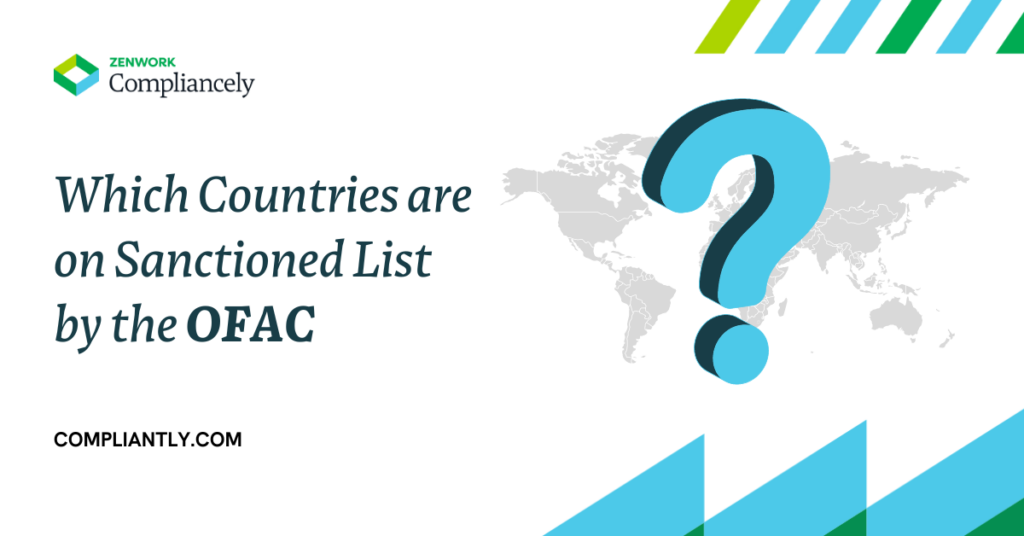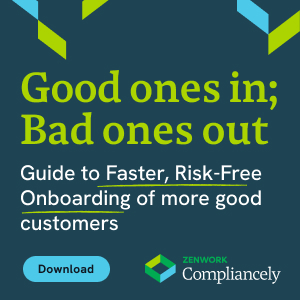Which Countries are on Sanctioned List by the OFAC

There are two things that every business needs to avoid: bankruptcy and risk.
Interestingly, when a business is not fully focused on its due diligence operations, risk becomes inevitable and bankruptcy becomes an alarming possibility.
It’s true.
When businesses fail to verify their customers and incoming employee profiles, they create room for malpractices.
And a relaxed Know Your Customer/Client process further adds to this negligence and increases the chances of fraud and financial liability.
Social engineering, financial fraud, identity theft and other kinds of fraud go hand in hand, and drive a lot of risk into your company’s operations, which pushes a business into financial instability.
However, all of this could be easily avoided if you verify the identities of the individuals or the entities that you plan to onboard.
This starts with creating a due diligence procedure that encompasses all the essential good practices for a sound KYC ecosystem.
It’s essential to note that the scope of due diligence varies for each business, and may or may not be the same for every business. That’s why the EU council, when bringing into effect the 5th AML Directive, instructed businesses (especially financial institutions) to adapt to the KYC ecosystem and its due diligence processes within reason and feasibility.
The OFAC also advises businesses to vet the incoming profiles and connected associations prior to committing business arrangements to avoid conflicts and risk.
The due diligence process begins with identifying the identities of the profile and validating them against a government-authorized data list.
One such due diligence check is the OFAC Sanctions check which will be discussed in detail as follows.
OFAC (Office of Foreign Assets & Control) Sanctions Watch List: An Overview
OFAC is the official financial intelligence and enforcement agency of the U.S. Treasury Department. It deals with U.S. economic security, and enforces economic and trade sanctions on certain countries.
If a business entity or an individual has been identified in the OFAC Watch List, it means that the entity or the individual has violated the U.S. foreign trade and economic policy and is a threat to the U.S. national and economic security.
OFAC Sanctions are enforced on entities and individuals after thorough investigations by the Treasury Department officials. Once an entity or an individual is on the federal radar, it usually means that any business or economic arrangement with such a profile is “off limits”.
Engaging in trade or business arrangements with a sanctioned profile is a violation of the federal policy and could lead to penalties and even legal trouble for a business.
Countries Sanctioned By The OFAC
According to OFAC, the department doesn’t maintain a specific list of countries that are sanctioned by the OFAC because the scope and severity of the sanctions issued varies for each case.
However, good practices for your business should include regularly verifying the identities of a profile against the OFAC data list to avoid violation of OFAC sanctions.
If you check this page from the official site of the OFAC, you will be able to see a list of all countries that have been issued sanctions by the U.S.
You can see that countries like China, Belarus, Iran, Cuba, North Korea, and other countries have been issued sanctions for engaging in terrorism or terror regimes, money laundering, and other similar activities.
Understanding OFAC Sanctions
Sanctions prohibit the persons and entities within the U.S. to engage in trade or business activity with persons or entities in the targeted countries.
OFAC sanctions are testimony to the fact that the entity or an individual has been identified by the federal authorities as a threat to the U.S. economic and national security.
The individuals identified by OFAC authorities are termed “specially designated nationals” and entities are termed “blocked entities”.
Both blocked entities and SDNs are under federal radar for engaging in activities which threaten the U.S. national and economic security.
Money laundering, terrorism, terrorism financing, narcotics trafficking, restricted arms exports, and other prohibited activities being only a few of them.
How Compliancely helps
Compliancely is an authorized compliance enabler, powering thousands of businesses around the world with real-time identity checks.
With a suite of identity checks, you can select and run specific checks on bulk profiles and verify the identities in real-time.
Choose OFAC Watch List check to run OFAC check on your bulk data and validate if the profiles are listed in the OFAC watch list.
Conduct due diligence with confidence and avoid risk easily with our real-time identity checks.
